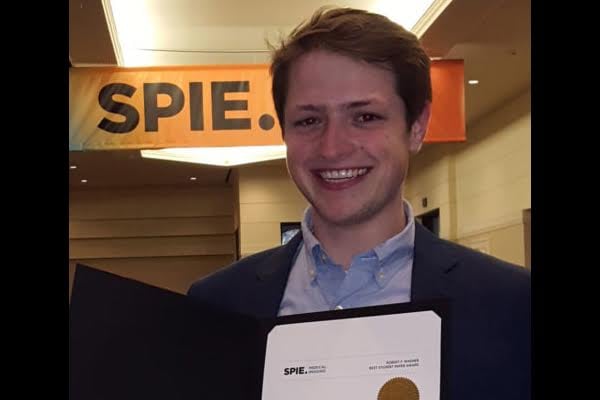Michael Ketcha Wins Young Scientist Award at SPIE 2017

Michael Ketcha, a PhD student in biomedical engineering, has won the Young Scientist Award at the 2017 SPIE Medical Imaging conference in Orlando, Florida for his paper entitled “Fundamental limits of image registration performance: effects of image noise and resolution in CT-guided interventions.”
Ketcha’s research aims to solve a fundamental question: How does the accuracy of image registration depend on image quality? Through his theoretical analysis that relates the lower bound in registration accuracy to the spatial resolution and noise in the underlying images, his work provides insight on imaging techniques for image-guided interventions.
“While imaging performance is fairly well understood for detection and discrimination tasks, comparatively little has been done to relate image quality factors to the task of image registration,” he explains.
Ketcha’s work could lead to techniques requiring lower radiation doses than those traditionally used for image visualization, while still being well suited for image registration. His work also includes analysis of the robustness of several similar metrics against image-quality degradation, uncovering a method to optimize post-processing in order to minimize registration errors.
The Young Scientist Award recognizes the outstanding work of young researchers in the SPIE Medical Imaging conference on Image-Guided Procedures, Robotic Interventions, and Modeling. Ketcha attends Johns Hopkins University and is advised by Jeff Siewerdsen in the I-STAR Lab and Carnegie Center for Surgical Innovation.
View Michael’s abstract here.
